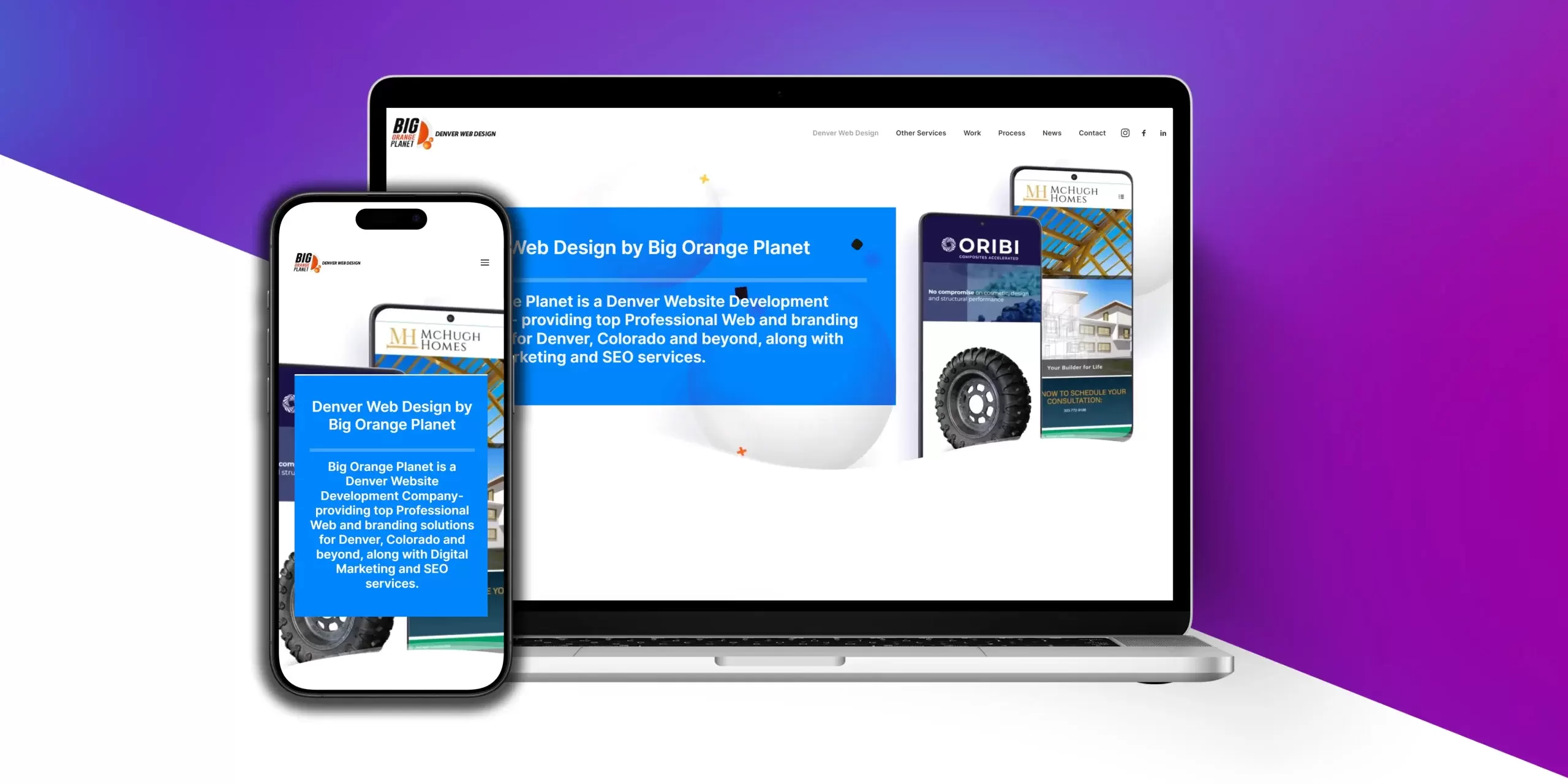As this article is being written, Google is continuing to roll out a very major update to its algorithmn, what is known as a core update. What exactly said update entails is starting to come to light and its related to content. For reference please see this from Search Engine Land.
Our company has been involved in the web development and SEO arenas for 2 decades. As we like to say Google can be your friend or your enemy. They write their own rules and change those rules frequently.
Attached is a screenshot of our primary keyword target phrase, which is ‘denver web design’. Of course we have many more target phrases, but this particular search has high search volume and strong user intent. By user intent we mean likelyhood of meaningful conversion. It goes without saying that a lot of searches that result in a click to our website are not necessarily solid business leads. On a daily basis we receive inquiries, generally from Google search, offering SEO services. The irony is not lost. That said there are numerous folks who land on the site that are looking for a web design company geographically near to them- our target market.
So how did we get to the top? By a lot of trial and error, a lot of online research, a lot of patience.
Let’s dive into what we did and how it mattered, there follows SEO best practices in a nutshell.
The primary rules for successful ranking on google:
- Create a fully device responsive website based on what’s called the bootstrap framework.
When a user views your site, regardless of what device they are using, be it desktop,laptop,pad, or phone, the experience needs to be seamless. If the website renders badly on a phone but is ok on a laptop, you just shot yourself in the foot. It will be recognized and it will be penalized. Hire a competent developer and look at their website portfolio on more than one device.
- The speed your website loads is of paramount importance, especially on a phone (roughly 2/3 of all internet searches are performed on mobile.) For various reasons load time on a computer is several degress faster than on a phone, and this is a truism of almost all websites. If your site loads slow on a phone it will negatively affect your rankings on all devices. Should you be running a wordpress website we have some good recommendations to address site speed over here.
- There is an old adage commonly bandied around that content is king. And its largely true. The only way google knows what your page is about is if you tell it. And the better that content is written, the more pertinent it is to the reader’s questions and concerns, the better the page will rank. As per the link from Search Engine Land early in this article, don’t take the author’s word for it, take google’s word for it right from the horse’s mouth.
- Google’s core algorithmn was originally built on what we like to term “the importance principle” (a term we made up)- the idea was if folks searching think you’re important, then you are, a self fulfilling prophecy. And how was importance gauged?- if websites linked to your website it counted as a vote of confidence. The underlying assumption was the more links to a website, the more important it was, and the higher it ranked. Inbound links carried (and still do though differently) what’s known as link juice.
- Then everyone and their wife abused it like you wouldn’t believe. Link farms, billions of spam comments every week, private blog networks. More superfluous info than the entire library of Alexandria contained was produced every couple of days. And most of that info was produced for the sole purpose of building links. As for the Roman soldier who didn’t extinguish his cigarette correctly and set fire to the library inadvertently who knows. And yes there were no cigarettess back then obviously, but somehow the pinnacle of human knowledge was torched.
More Big Orange Knowledge
November 19, 2025
Top 5 Hosting Platforms That Won’t Break Your Portfolio Design
Web DesignPortfolio DesignHosting Platforms
Because there are so many providers that offer access to the hosting plans, you…
December 17, 2024
The Importance of: “Google My Business” Configuration
Web DesignLocal SEOSEOOrganic SEODenver Web Design
"Google my business" is a google provided tool that can literally change your…
April 21, 2023
How to successfully compress images for the web
Web DesignSEODenver Web Design
Any visual web content has weight. And the larger a file's size, the slower it…
October 13, 2025
Headless WordPress: When and How to Use It
Headless WordPress refers to a setup where WordPress is used solely as a…
March 4, 2025
What does an SEO site audit proposal look like?
Local SEOADA CompliantSEOOrganic SEO
Here at Big Orange Planet we have proven SEO strategies others do not. These…
April 7, 2024
Poster Image: How & why to add one to a video in WordPress
What is a poster image? In the event your video doesn't play a poster image…






